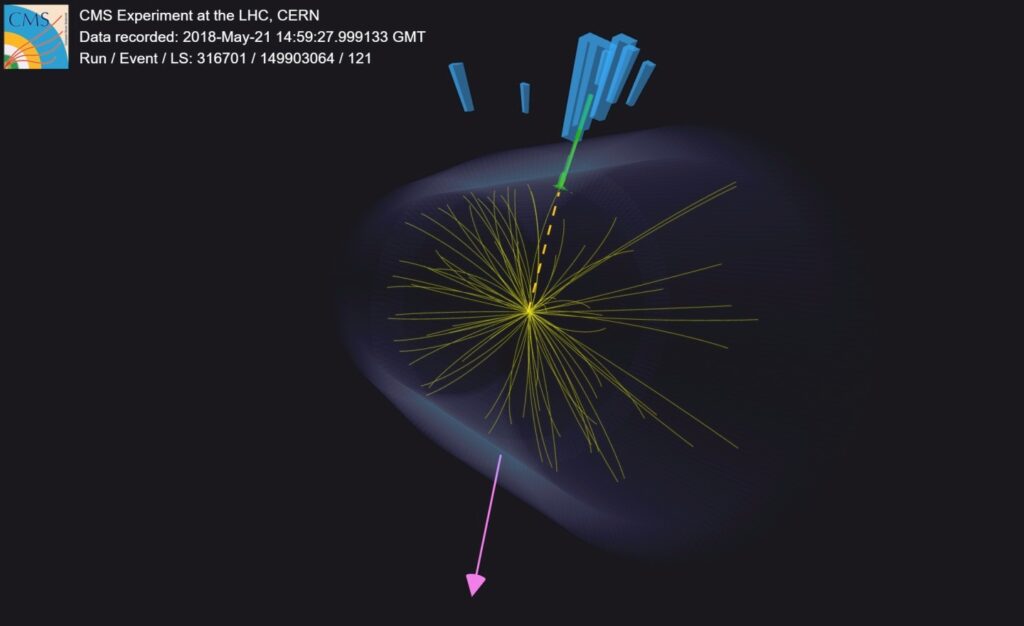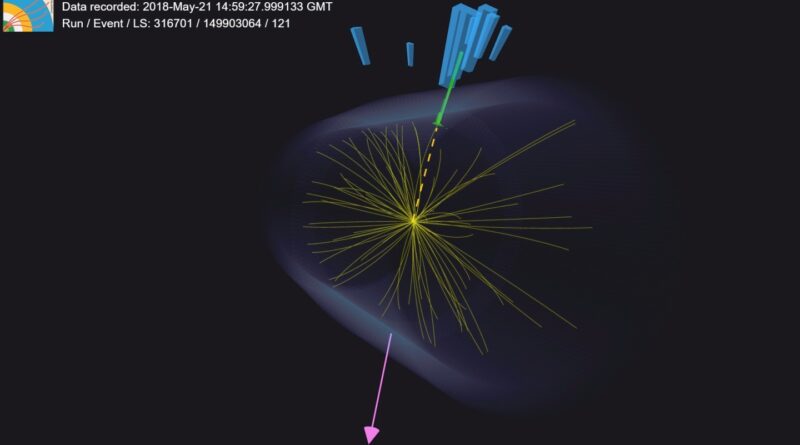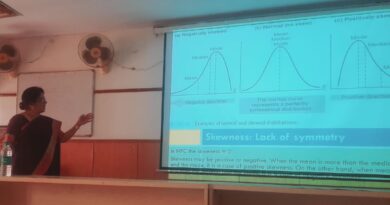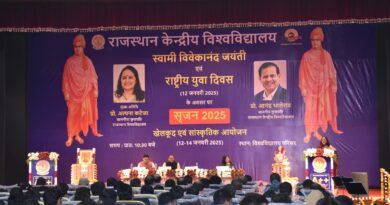University of Hyderabad Scientists Contribute to LHC Experiment That Wins Prestigious Breakthrough Prize
Hyderabad : In a moment of immense pride for India, the Large Hadron Collider (LHC) experiment at CERN, which has been awarded the 2025 Breakthrough Prize in Fundamental Physics, has a strong Indian connection. The group led by Dr Bhawna Gomber at CASEST, School of Physics, University of Hyderabad, played a significant role in this landmark scientific achievement.


The Breakthrough Prize recognizes the outstanding contributions of international scientists working at CERN who have expanded our understanding of the fundamental nature of the universe. The LHC experiment has been at the forefront of discoveries in particle physics, including the historic detection of the Higgs boson in 2012.
Dr Gomber’s group has been deeply involved in the CMS (Compact Muon Solenoid) experiment at CERN. Their work spans data analysis, trigger electronics, and cutting-edge research in high-energy particle interactions, making significant contributions to the success of the project.
Her research group is actively engaged in investigations of physics beyond the Standard Model, with a particular focus on the search for dark matter particles, large extra dimensions, and anomalous trilinear gauge couplings. Recent results from dark matter searches, conducted by her doctoral students Bisnupriya Sahu and Shriniketan Acharya, were presented at the 59 th Rencontres de Moriond 2025 conference [1,2,3]. In parallel, the group contributes significantly to the development of firmware for the Level-1 Calorimeter Trigger upgrade of the CMS detector, in preparation for the High-Luminosity LHC.
In recognition of his substantial contributions to the design and testing of firmware algorithms and associated hardware for the Phase-2 upgrade, Ph D student Piyush Kumar was honored with a CMS Achievement Award during CMS Week on 24 June 2024.
Speaking on the occasion, Dr Gomber said, “We are thrilled to see our years of effort recognized as part of this global milestone. It’s a proud moment not just for our team, but for the Indian scientific community as a whole.”
The recognition underlines India’s growing presence in frontier scientific research. Dr Gomber’s team is one of several Indian research groups collaborating with CERN, and their efforts have helped cement India’s role as a vital contributor to global science.
The experimental high energy physics group at University of Hyderabad was started by Prof Bindu Bambah and Prof Rukmani Mohanta by joining the NOVA collaboration and Indian institutes at Fermilab collaboration in the USA.
References
[1] https://cms.cern/news/beyond-light-probing-dark-matter-and-extra-dimensions-cms,
[2] https://cms-results.web.cern.ch/cms-results/public-results/preliminary-results/SUS-23-012/index.html
[3] https://cms-results.web.cern.ch/cms-results/public-results/preliminary-results/SUS-23-017/index.html
SUS23016 Picture caption: An event recorded with the CMS detector having an event signature consistent with the production of a single photon, shown by the dashed line, and large missing transverse momentum, indicated by the magenta arrow.
For further details may contact Dr Bhawna Gomber on her mobile no. 9873416985






